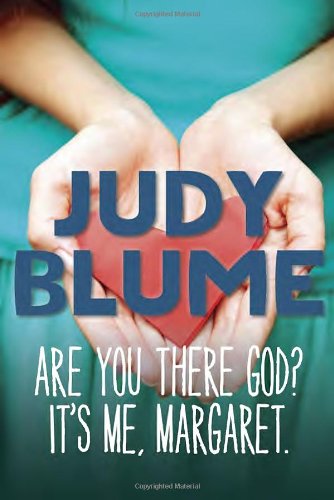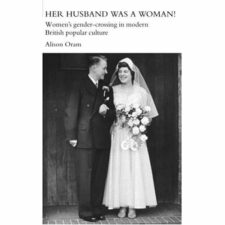
Young Adult Literature as a genre came to be a ‘publishing phenomenon’ only as late as the 1960s and 1970s. A sub-genre of so-called ‘problem novels’ quickly emerged, most often aimed at young women and focusing on ‘divorce, drugs, alcohol- or problems associated with social life, sexual experience, and physical development.’[1] By the early 1980s, writers including Judy Blume and Norma Klein, who wrote in an adolescent rhetorical style and explored bodily, sexual, and reproductive themes that spoke directly to girls’ experiences, began gaining recognition for their literary contributions.[2] However, at the same time, others began efforts to have such works removed from bookshop and library shelves and kept away from young eyes.
The emergence of this branch of morality policing is not surprising given the context of Reagan’s Right in the 1980s. Judy Blume describes how ‘almost overnight, following the presidential election of 1980, the censors crawled out of the woodwork, organized and determined.’[3] One of the most notable aspects of this ‘wave of censorship’ was its unification of local, state, and national levels of discourse. National conservative groups including the Moral Majority and Phyllis Schlafly’s Eagle Forum engaged with conservative thinkers in libraries and bookshops by encouraging more attention to what children and teenagers were reading.[4] Independently, ‘other objections to books were…of local origin.’[5] In November of 1984, trustees of the school district of Peoria, Illinois voted to ban three novels by Judy Blume (Blubber, Deenie, and Then Again, Maybe I Won’t) from the city’s public school libraries, ‘on the ground that the books’ strong language and sexual content were inappropriate for children under thirteen who might gain access to them.’[6] A Peoria resident defended this decision in the Southeast Missourian: “It’s not as if we’re taking all the Judy Blume books and putting them in a bonfire.”[7] The assertion here was that what was happening was not total censorship in a way that impinged on First Amendment rights or echoed McCarthy era communist witch-hunts, but merely a normal concern for ‘childhood innocence.’


Other documented cases of censorship of young adult literature are demonstrative of what censors were reacting to within these texts. In a 1993 speech, Judy Blume recalled giving three copies of her 1970 coming-of-age novel Are you there God? It’s me, Margaret to her son’s elementary school, then later realizing that they had ‘never reached the shelves’ as ‘the male principal decided on his own that they were inappropriate for elementary school readers because of the discussion of menstruation…never mind that many fifth and sixth grade girls already had their periods.’[8] Blume cites a reason commonly given for wanting to ban her books as ‘sexuality (which means anything to do with puberty).’ [9] It might be assumed that these were in fact specific reactions to the stories being about young women acting with sexually agency. Individual complaints substantiate this. A male principal deemed Blume’s novel Deenie ‘unsuitable for young readers because in the book Deenie masturbates… It would be different if it was a boy.’[10] Norma Klein’s experience of censorship also reflects the highly gendered nature of the critique. In her essay ‘On Being a Banned Writer,’ Klein discussed a letter she received in complaint of her work in 1983. The writer of the letter was shocked that, in the novel Breaking Up, a fifteen-year-old girl ‘dates without asking her parents’ permission,’ and ‘makes a big deal about how special it was that she “saved” herself for a boy she really loved…I always thought girls were to save themselves for the man they married!’ [11] A pervasive consternation among such critics was that the books would influence the behavior of young readers: ‘challengers seemed to believe that what kids read about, they were sure to do….(it) represents a deep fear of the power, sexual and otherwise, of the young.’[12]

The novels themselves give more clues as to what might have triggered this level of censorship. The greatest influence on the young, female characters is undoubtedly women’s liberation. In Klein’s Beginner’s Love, the protagonist muses: ‘Leda says if men got pregnant, abortion would be a sacrament. She read that in some feminist magazine.’[13] The plots reflect what Joan Jacobs Brumberg has called the ‘brief moment’ in American history where there were ‘few sexual constraints on sexually active girls.’[14] In the novels by Blume, Klein, et al, ‘two nice kids, in love, have sexual intercourse and no one dies.’[15] In both Blume’s Forever and Klein’s It’s Ok if you Don’t Love Me, the male love interests are the ones left alone, the girls having moved on and embodied the traditionally ‘masculine’ relationship role. The young women in these books enjoy sex, and their experiences are discussed in detail. Crucially, they enjoy sex as just one component of a rounded lifestyle, as with Blume’s Sybil: ‘Sybil Davison has a genius IQ and has been laid by at least six different guys.’[16] In flagrant disregard of conservatives’ disapproval of sexual education, Blume and Klein wrote their characters as constantly seeking this out, as with Katherine in Forever, who talks through her contraceptive options with her grandmother. They have an almost utopian level of support from their families, teachers and friends in their quest for sexual knowledge. However, this reveals urban and class dimensions that may have alienated more readers than just potential censors. Much of the freedom the young women are afforded is due to their upper-middle-class backgrounds and their East Coast location. For instance, Forever’s Katherine is able to take public transport in to Manhattan to visit Planned Parenthood and obtain birth control on her own. This critique links this debate to the wider dispute over the historical significance of the sexual revolution; as bell hooks writes in Feminist Theory from Margin to Center, ‘most women did not have the leisure, mobility, etc. to be sexually “free.”[17]

Ultimately, the sexual freedom experienced by the young women in these books was so at odds with the ubiquitous desire to silence discourse on teenage female sexuality in the 1980s that it is unsurprising that these novels were so widely contested at this moment in history.
Charlie Jeffries (c) January 2015
Charlie Jeffries is in the second year of a PhD in History at the University of Cambridge. Her doctoral project examines shifting attitudes towards teenage female sexuality in America from 1981-2008. For the Spring of 2015, she is based in Boston undertaking archival research funded by the Dissertation Grant at Harvard’s Schlesinger Library on the History of Women in America, and as an exchange student at Boston University. She has an undergraduate degree in American Studies from King’s College London with a year abroad at Georgetown University, and a master’s degree in Women’s Studies from the University of Oxford. Between her master’s and PhD, she spent a year as a Teaching Fellow at the Asian University for Women in Chittagong, Bangladesh, where she taught modules in world history, and ran a queer theory reading group and a feminist film seminar.
[1]Lucy Rollin, Twentieth-Century Teen Culture by the Decades: A Reference Guide (Westport; London: Greenwood Press, 1999), p. 266.
[2]Mallory Szymanski, ‘Adolescence, Literature, and Censorship: Unpacking the Controversy Surrounding Judy Blume,’ The Neo-Americanist 3 (Spring/Summer 2007), p. 6.
[3]Judy Blume, Places I Never Meant to Be: Original Stories by Censored Writers (New York: Simon Pulse, 2001) p. 5.
[4]‘Book Banning in America,’ The New York Times, December 20, 1981.
[5]Leonard S. Marcus, The Minders of Make Believe: Idealists, Entrepreneurs, and the Shaping of American Children’s Literature (Boston: Houghton Mifflin Harcourt, 2008), p. 303.
[6]Marcus, Minders, p. 303.
[7]‘School Board Reverse Blume Book Ban,’ Southeast Missourian, December 6, 1984.
[8]Judy Blume ‘Is Puberty a Dirty Word? (Adapted from a speech given at conference, ‘The Sex Panic: Women, Censorship, and Pornography’ May 7-8, 1993), New York Law School Law Review 38 (1993), p. 38.
[9]Blume, ‘Is Puberty a Dirty Word?’ p. 38.
[10]Blume, ‘Is Puberty a Dirty Word?’ p. 38.
[11]Norma Klein, ‘On Being a Banned Writer,’ The Lion and the Unicorn 10 (1986), p. 19.
[12]Rollins, Teen Culture, p. 301.
[13]Norma Klein, Beginner’s Love (London: Pan Horizons, 1986), p. 168.
[14]Joan Jacobs Brumberg, The Body Project: An Intimate History of Teenage Girls (New York: Vintage Books, 1998), p. 185.
[15]Peter Gorner interview with Judy Blume, ‘The Giddy/sad, Flighty/solid Life of Judy Blume’, Chicago Tribune, March 15, 1985.
[16]Judy Blume, Forever, (London: Pan Horizons, 1986), p. 5.
[17]bell hooks, Feminist Theory: From Margin to Center (Cambridge: South End Press, 2000), p. 148.
